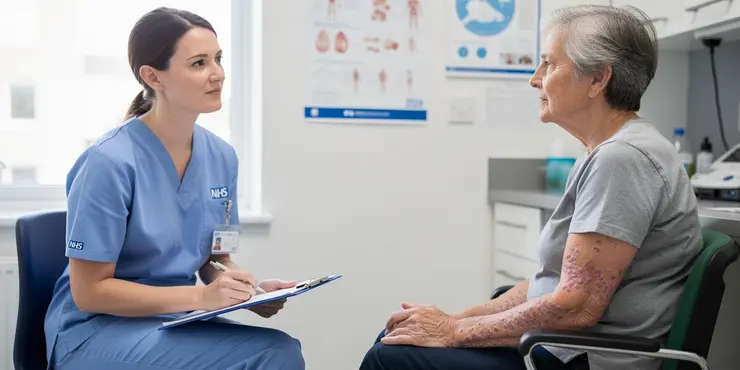
Find Help
More Items From Ergsy search
-
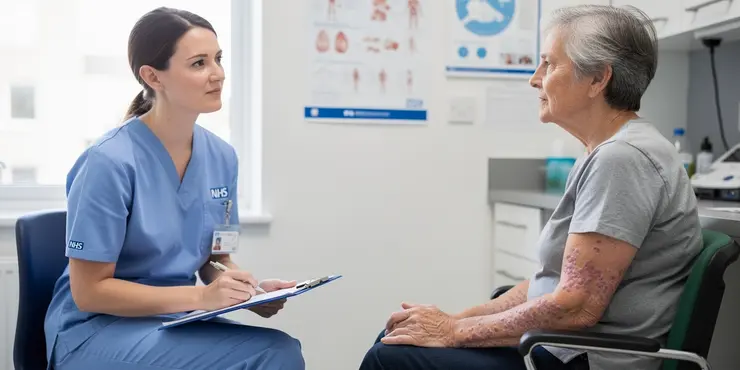
Is there a cure for psoriasis?
Relevance: 100%
-
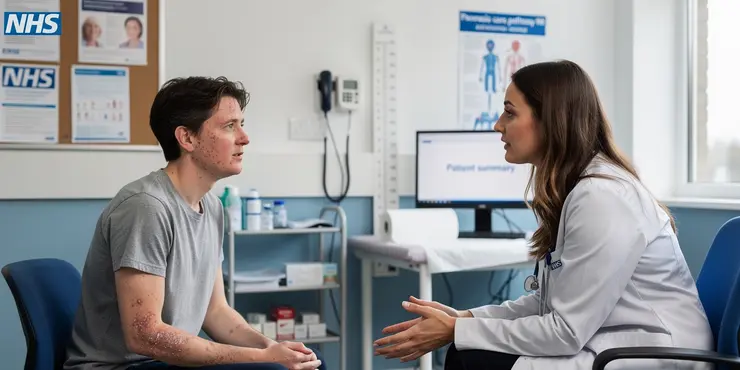
What is psoriasis?
Relevance: 69%
-
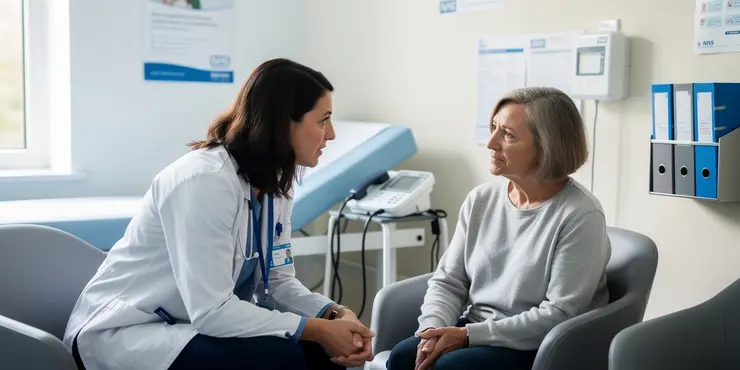
Psoriasis | NHS
Relevance: 69%
-
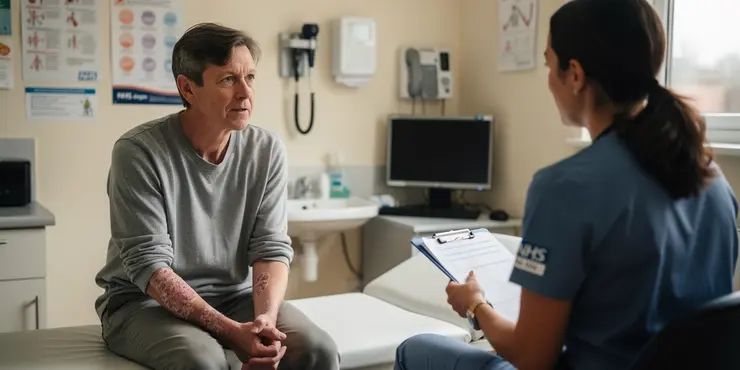
What causes psoriasis?
Relevance: 66%
-
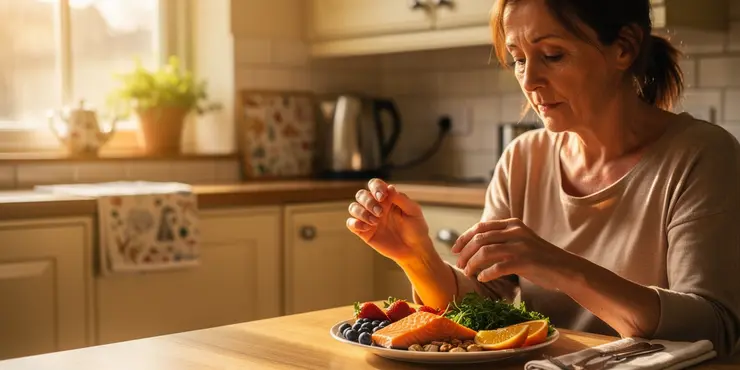
Can diet affect psoriasis?
Relevance: 63%
-

Are there home remedies for psoriasis?
Relevance: 61%
-
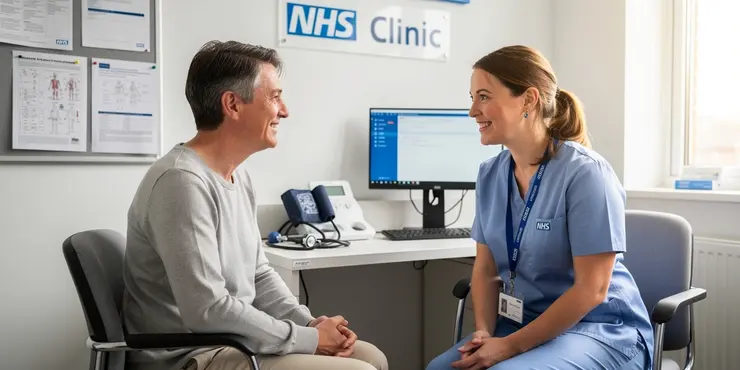
How to treat psoriasis
Relevance: 61%
-
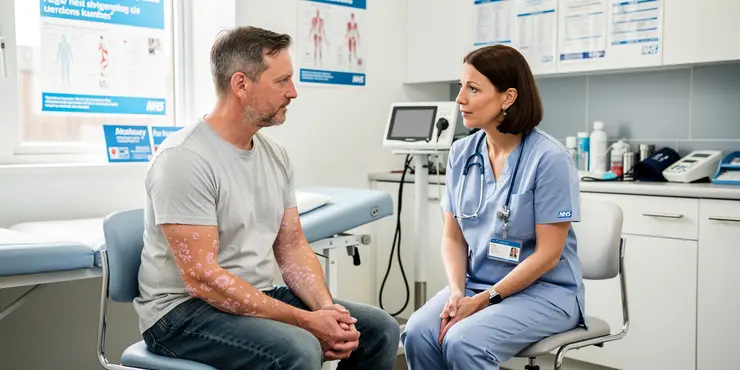
What treatment options are available for psoriasis?
Relevance: 60%
-
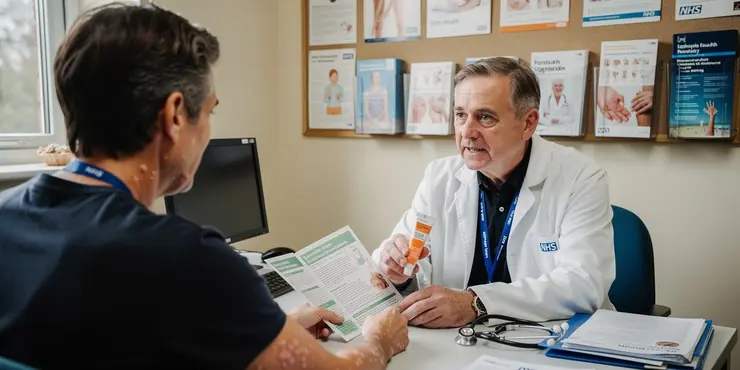
What are topical treatments for psoriasis?
Relevance: 58%
-
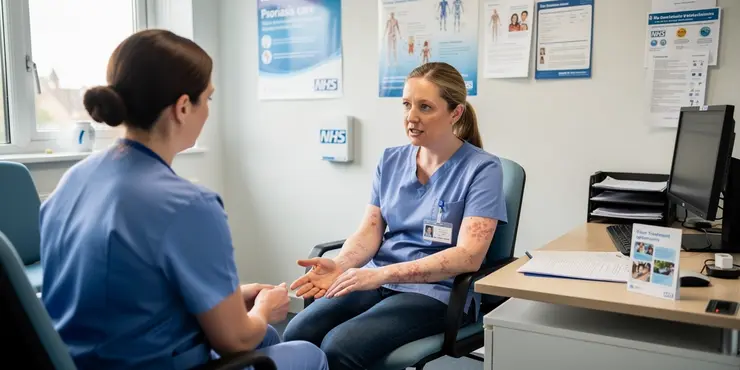
What are systemic medications for psoriasis?
Relevance: 58%
-
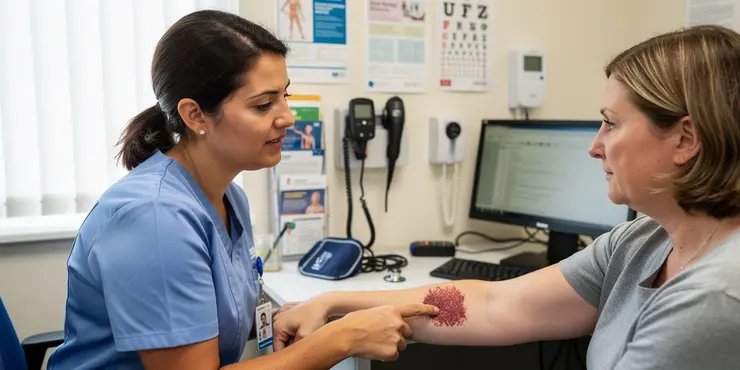
How is psoriasis diagnosed?
Relevance: 56%
-
What role do lifestyle changes play in managing psoriasis?
Relevance: 56%
-
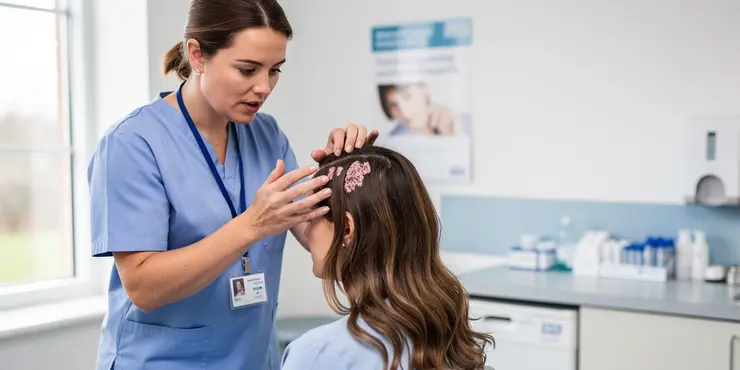
Treating scalp psoriasis
Relevance: 55%
-
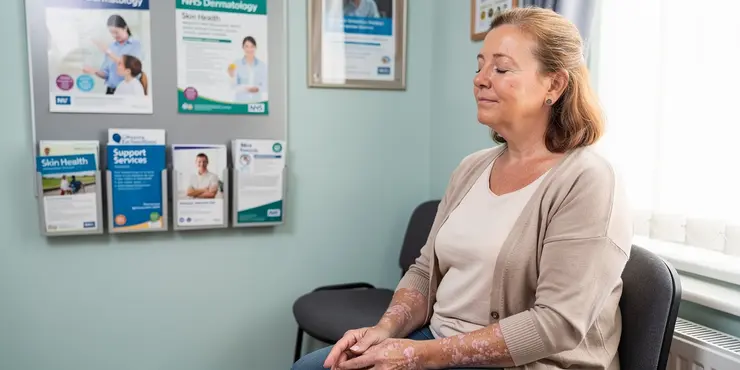
Can stress trigger psoriasis flare-ups?
Relevance: 53%
-
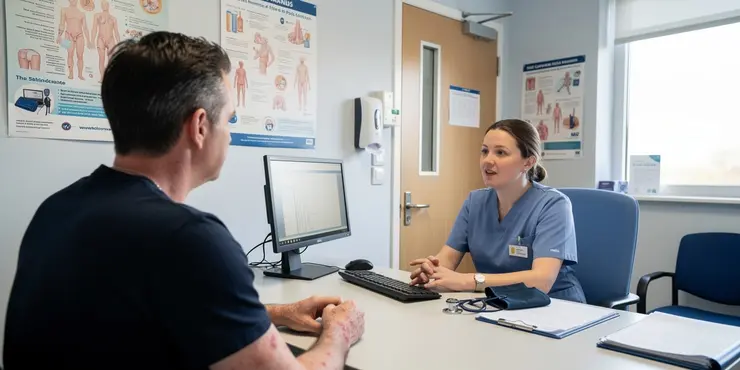
When should I see a doctor for psoriasis?
Relevance: 52%
-
Is it true that sunbeds can help treat skin conditions like psoriasis?
Relevance: 45%
-

Is there a cure for ADHD?
Relevance: 42%
-
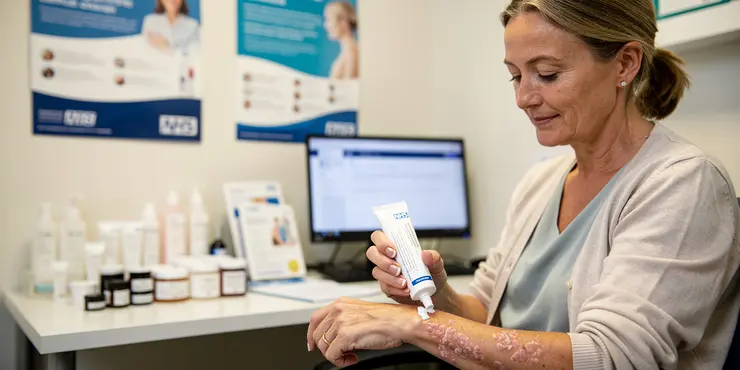
Can over-the-counter treatments help with psoriasis?
Relevance: 42%
-
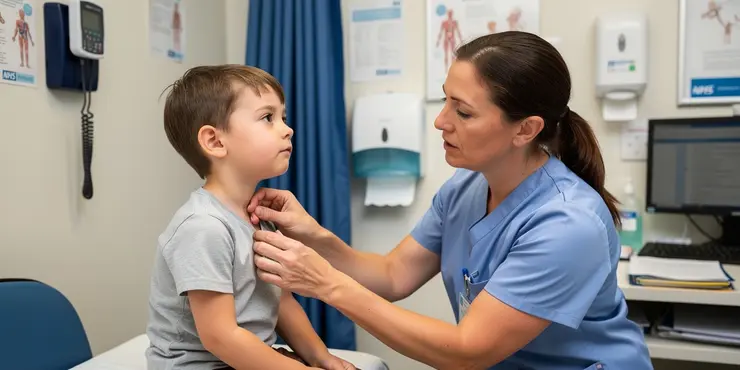
Is there a cure for eczema?
Relevance: 41%
-

Can autism be cured?
Relevance: 41%
-
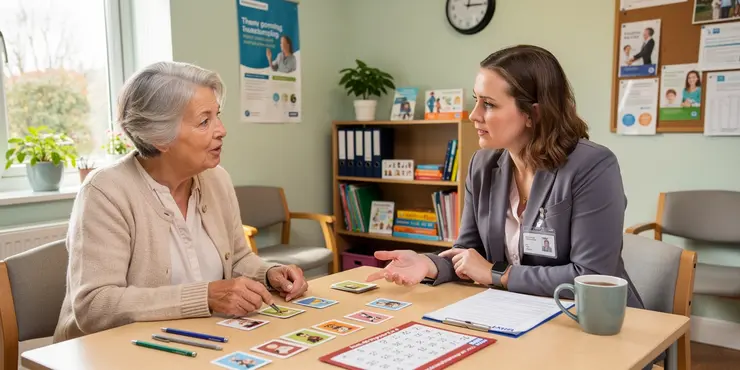
Is there a cure for dementia?
Relevance: 41%
-
Can tinnitus be cured?
Relevance: 40%
-

Can asthma be cured?
Relevance: 40%
-
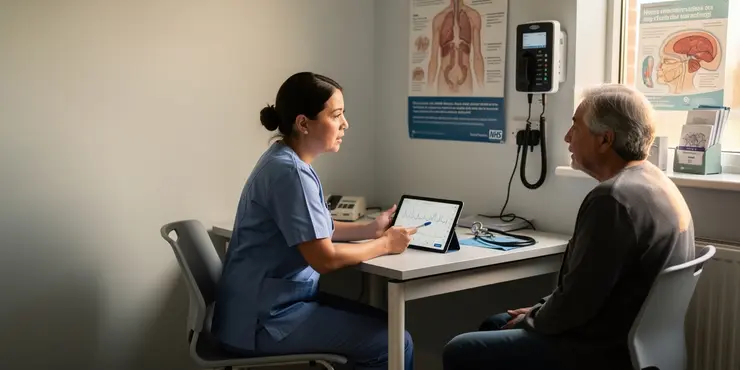
Can sleep apnea be cured?
Relevance: 39%
-
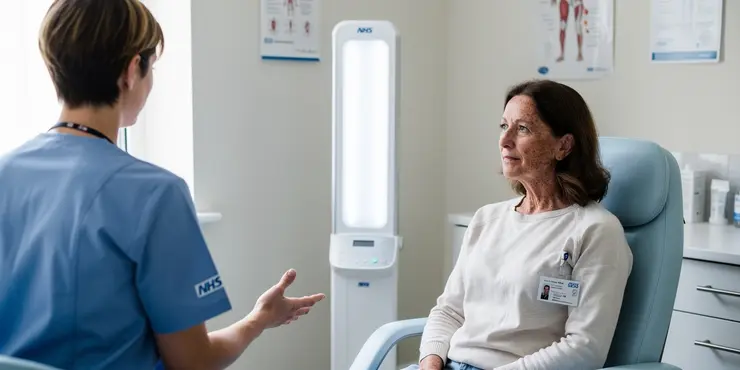
Can phototherapy help with psoriasis?
Relevance: 39%
-
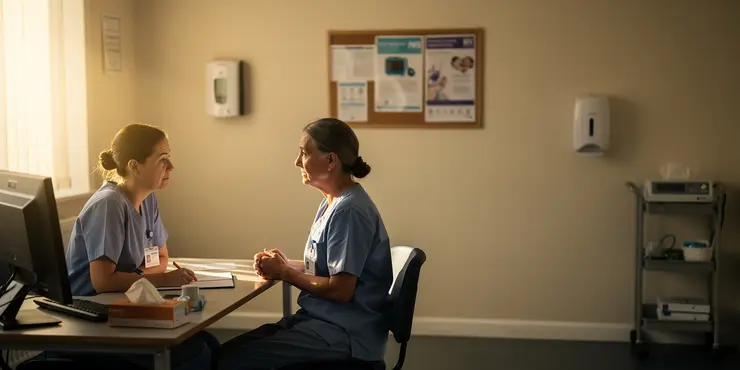
Can Huntington's disease be cured?
Relevance: 39%
-
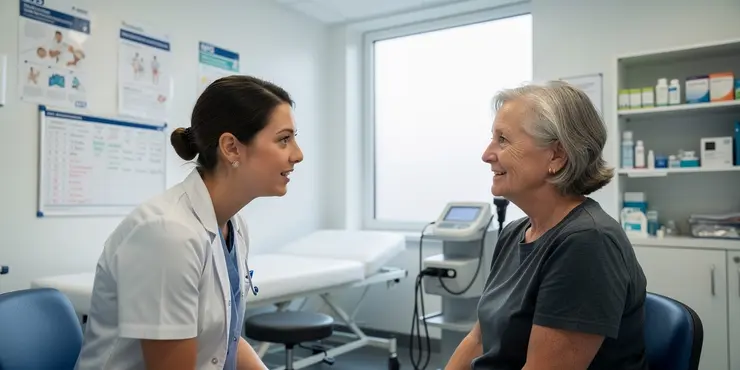
Is there a cure for Crohn's disease?
Relevance: 38%
-
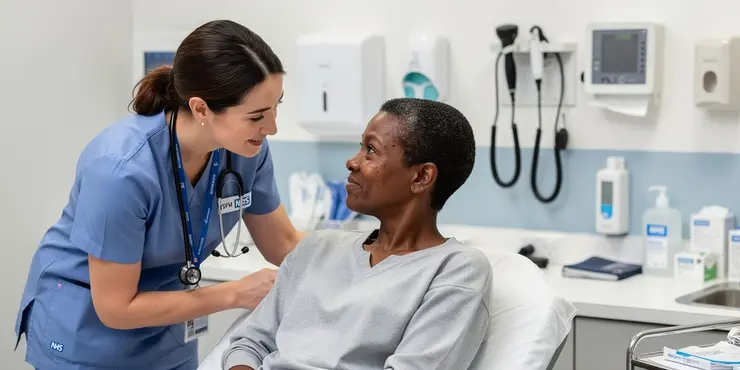
What is the principle of 'like cures like'?
Relevance: 38%
-
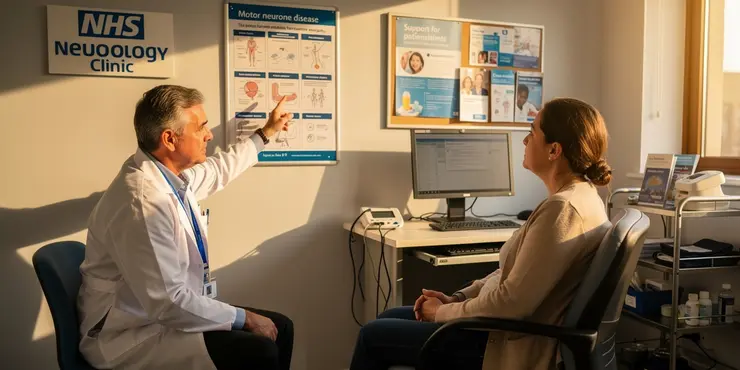
Is there a cure for motor neurone disease?
Relevance: 38%
-
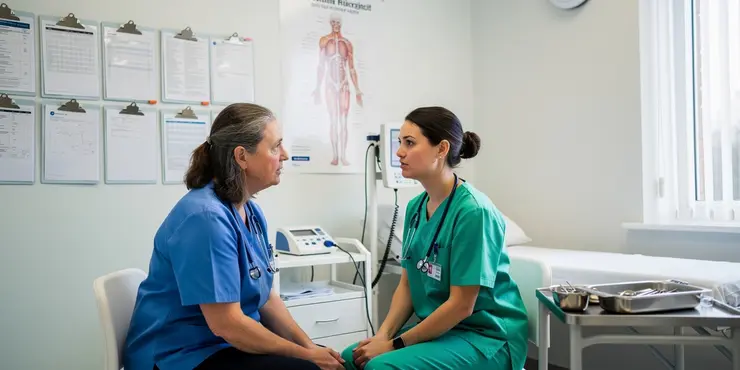
Is there a way to cure a cold quickly?
Relevance: 38%
-
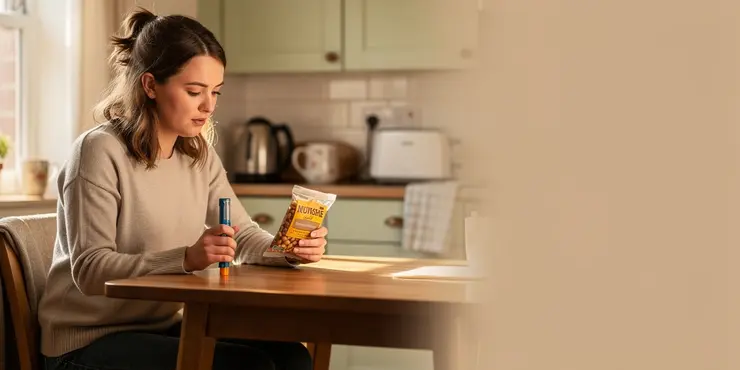
Is there a cure for nut allergies?
Relevance: 37%
-
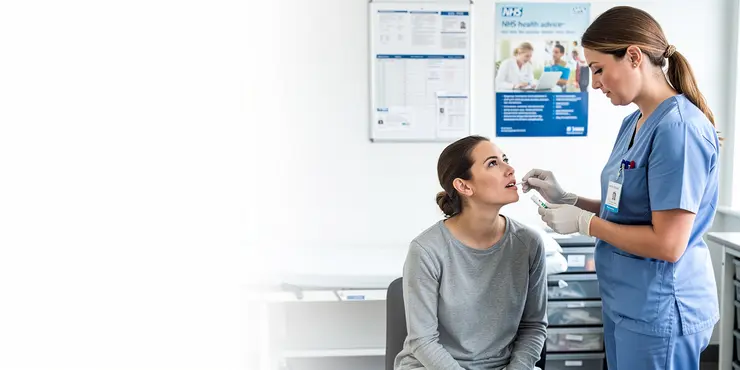
Is there a cure for cold sores?
Relevance: 37%
-
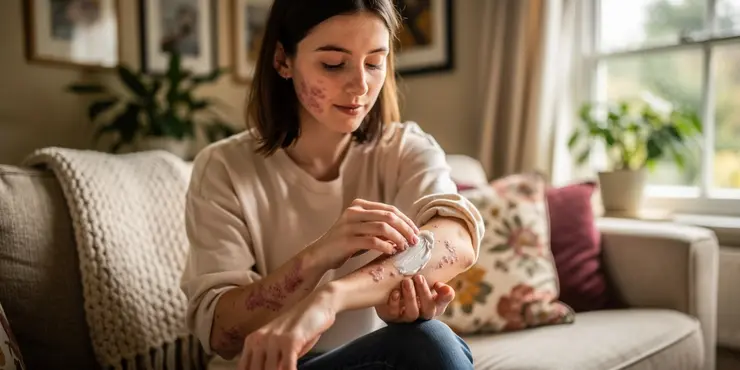
How important is it to keep the skin moisturised with psoriasis?
Relevance: 36%
-
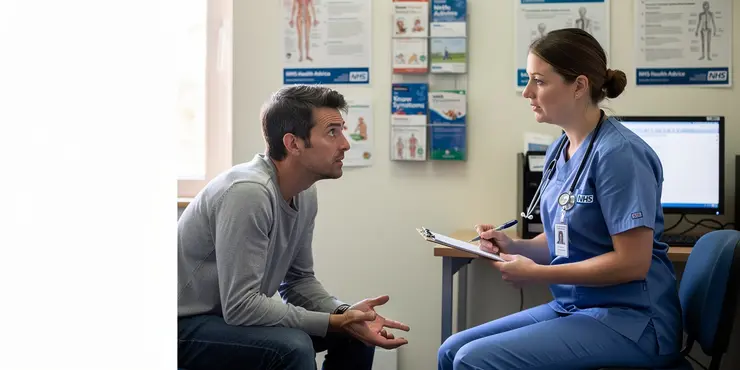
Is there a cure for Nipah Virus?
Relevance: 36%
-
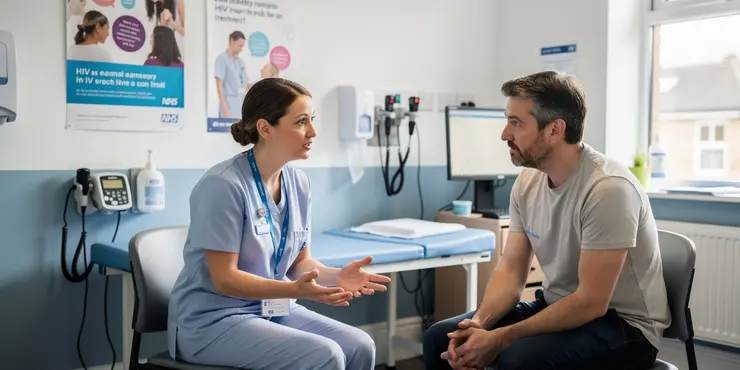
Can HIV be cured?
Relevance: 34%
-
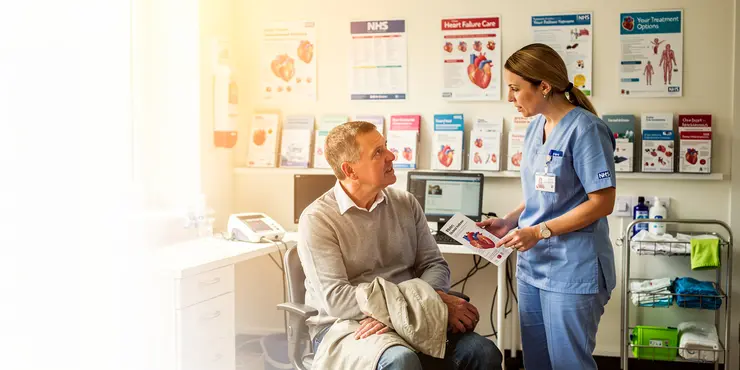
Can heart failure be cured?
Relevance: 33%
-
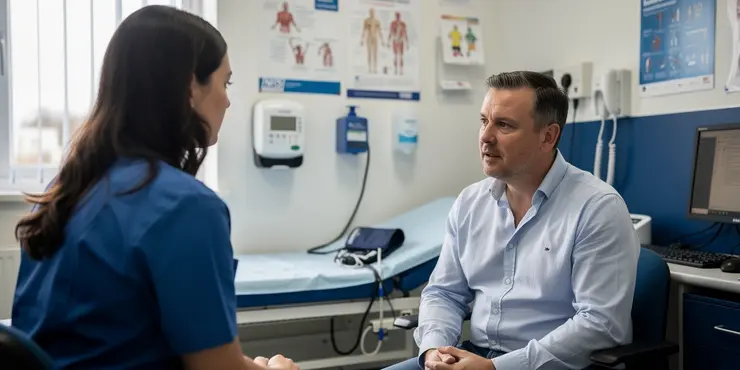
Does Abiraterone cure prostate cancer?
Relevance: 33%
-
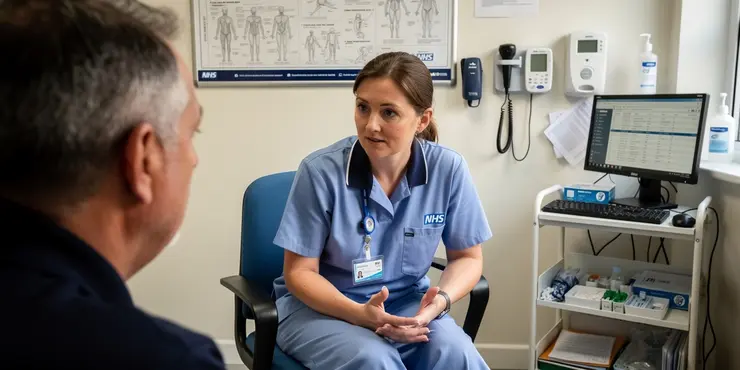
Has aspirin been proven to cure colorectal cancer?
Relevance: 31%
-
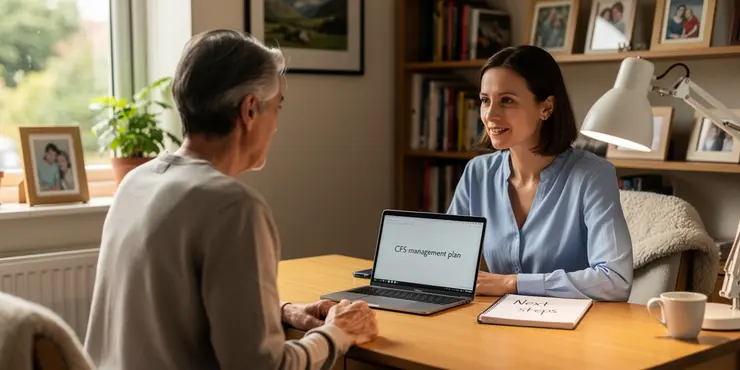
Is there a cure for chronic fatigue syndrome?
Relevance: 30%
-
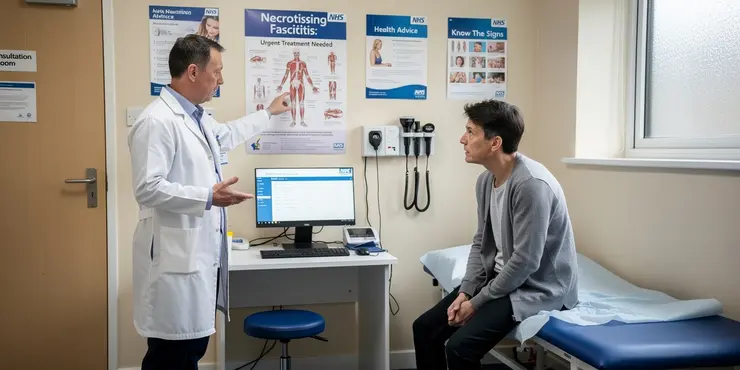
Can antibiotics alone cure flesh-eating disease?
Relevance: 29%
Understanding Psoriasis
Psoriasis is a chronic skin condition that leads to red, flaky patches on the skin. It is an autoimmune disorder that increases skin cell production, resulting in scaling on the skin's surface. The severity of psoriasis varies among individuals, with some experiencing minor irritation and others dealing with major discomfort and pain. It can affect any part of the body but commonly appears on the knees, elbows, scalp, and lower back. Although psoriasis is not contagious, it can have a significant impact on the quality of life, often leading to emotional distress due to its visible nature.
Is There a Cure?
Currently, there is no outright cure for psoriasis. Researchers in the UK and around the world continue to study the mechanisms of the disease with hopes of finding a definitive cure. Despite the absence of a cure, there are a variety of treatment options available that can help manage the symptoms and improve the quality of life for those affected.
Treatment Options
The primary goal of psoriasis treatment is to reduce inflammation and scales, slow down the rapid skin cell turnover, and remove plaques. Treatments are broadly categorized into topical treatments, phototherapy, and systemic medications.
Topical treatments, including corticosteroid creams and moisturisers, are often the first line of defense against mild to moderate psoriasis. They help reduce inflammation and soothe the skin. Phototherapy involves exposing the skin to ultraviolet light under medical supervision, which slows down skin cell production.
For moderate to severe cases, systemic medications may be prescribed. These include oral or injected medications such as methotrexate, ciclosporin, and biologics, which target specific parts of the immune system. While these treatments can be effective, they may also carry risks of side effects, making careful medical supervision essential.
Lifestyle and Home Remedies
In addition to medical treatments, lifestyle and home remedies can play a significant role in managing psoriasis symptoms. Keeping the skin moisturised, reducing stress, stopping smoking, and eating a healthy diet are important supportive actions that can help alleviate symptoms.
Oatmeal baths, aloe vera, and maintaining a healthy weight are also suggested remedies that some find beneficial. Regular exercise can also have a positive effect, as it helps reduce stress levels and supports overall health.
Conclusion
While there is currently no cure for psoriasis, a comprehensive approach combining medical treatment and lifestyle adjustments can significantly reduce symptoms and improve quality of life. Ongoing research continues to seek out new solutions, offering hope for a future cure. Individuals with psoriasis in the UK and elsewhere are encouraged to work closely with their healthcare providers to tailor treatment plans that best suit their needs.
Understanding Psoriasis
Psoriasis is a skin problem. It gives you red, scaly patches on your skin. This happens because your body is making skin cells too fast. This can make your skin itchy or sore. Psoriasis is not something you can catch from someone else. It often shows up on your knees, elbows, head, and back. It can make you feel upset because people can see it.
Is There a Cure?
There is no cure for psoriasis right now. Scientists are looking for a cure. Even though there is no cure, there are treatments that can help. These treatments can make people feel better.
Treatment Options
Treatments help to keep the skin from being inflamed and scaly. Treatments can be creams, special light, or medicine from a doctor.
Creams like corticosteroid cream and moisturisers can help with mild psoriasis. They make the skin less red and sore. Special light, called phototherapy, can also help. A doctor will watch as your skin gets this light treatment, which helps slow down skin growth.
If psoriasis is very bad, doctors may give medicines. Some medicines are pills or injections. They can help but might also cause side effects, so doctors need to watch you carefully.
Lifestyle and Home Remedies
Besides medicine, what you do at home can help too. Keeping your skin moist, having less stress, not smoking, and eating healthy food can help.
Taking oatmeal baths, using aloe vera, and keeping a healthy weight can also help. Regular exercise is good because it reduces stress and keeps you healthy.
Conclusion
There is no psoriasis cure right now, but treatments and taking care of yourself can help a lot. Researchers are working to find a cure. People with psoriasis should talk to their doctors to get the best help for them.
Frequently Asked Questions
Is there a cure for psoriasis?
Currently, there is no cure for psoriasis. However, there are treatments available that can help manage the symptoms and reduce flare-ups.
What treatments are available for psoriasis?
Treatments for psoriasis include topical treatments, phototherapy, and systemic medications (both oral and injectable). Each type targets various aspects of the immune response or skin cell production.
Can lifestyle changes help manage psoriasis?
Yes, lifestyle changes such as a healthy diet, regular exercise, stress management, and avoiding triggers can help manage psoriasis symptoms.
What are common triggers for psoriasis flare-ups?
Common triggers include stress, smoking, alcohol consumption, skin injuries, infections, and certain medications.
Are there any natural remedies for psoriasis?
Some people find relief using natural remedies like aloe vera, fish oil supplements, and oatmeal baths, but these should complement, not replace, medical treatments.
Is psoriasis a genetic condition?
Psoriasis has a genetic component, as it can run in families. However, environmental factors also play a role in its development.
Can psoriasis affect mental health?
Yes, psoriasis can affect mental health, leading to stress, anxiety, or depression, due to its impact on physical appearance and quality of life.
Is psoriasis contagious?
No, psoriasis is not contagious and cannot be spread from person to person.
What is the difference between psoriasis and eczema?
Psoriasis and eczema are both skin conditions but have different causes and symptoms. Psoriasis is an autoimmune condition characterized by silvery scales, while eczema is often related to allergies and causes itchy, inflamed skin.
Can children get psoriasis?
Yes, children can develop psoriasis, although it is more commonly diagnosed in adults.
How is psoriasis diagnosed?
A dermatologist usually diagnoses psoriasis based on the appearance of the skin. Occasionally, a skin biopsy is performed to confirm the diagnosis.
What role does the immune system play in psoriasis?
In psoriasis, the immune system mistakenly attacks healthy skin cells, leading to rapid skin cell turnover and the formation of plaques.
Are there different types of psoriasis?
Yes, types of psoriasis include plaque psoriasis, guttate psoriasis, inverse psoriasis, pustular psoriasis, and erythrodermic psoriasis, each with distinct characteristics.
Are there any potential long-term complications of psoriasis?
Psoriasis can increase the risk of other health issues, such as psoriatic arthritis, cardiovascular disease, and type 2 diabetes.
Are biologics effective in treating psoriasis?
Biologics are effective for moderate to severe psoriasis, targeting specific parts of the immune system to reduce inflammation and plaque formation.
Can diet affect psoriasis symptoms?
While no specific diet is proven to cure psoriasis, certain dietary changes like reducing sugar and fat intake may help improve symptoms for some individuals.
Can stress management improve psoriasis?
Yes, managing stress through techniques like meditation, yoga, or therapy can help reduce psoriasis flare-ups in some cases.
How does climate affect psoriasis?
Climate can affect psoriasis; for some people, warmer, sunnier climates help relieve symptoms, while cold, dry climates might worsen them.
Can psoriasis go into remission?
Yes, psoriasis can go into remission where symptoms are minimal or absent, but it's generally a chronic condition that can relapse.
Is light therapy effective for psoriasis?
Light therapy, or phototherapy, can be effective for many people with psoriasis by slowing skin cell growth and reducing symptoms.
Can psoriasis be fixed?
Psoriasis is a skin problem that can make your skin red and feel itchy. There is no cure, but you can make it feel and look better. Doctors can give you creams or pills to help. Talking to a doctor is a good idea if you have psoriasis.
Here are some things that might help:
- Use special cream from your doctor.
- Try not to scratch your skin.
- Keep your skin clean and dry.
- Ask a grown-up to help you talk to a doctor.
Right now, we can't cure psoriasis completely. But there are treatments that can help make it better and stop it from getting worse.
What can help if I have psoriasis?
Psoriasis makes skin red and itchy. Here are some ways to help:
- Put special cream on itchy skin.
- Take medicine from the doctor.
- Use special lights in a treatment called light therapy.
Ask your doctor or nurse for help. They can tell you what is best for you.
Treatments for psoriasis can be creams you put on your skin, special light therapy, or medicines you take by mouth or injection. These treatments work in different ways to help with your skin and immune system.
Can changing habits help with psoriasis?
Yes, making some changes in the way you live can help with psoriasis. Eating healthy foods, doing regular exercise, staying calm, and staying away from things that make it worse can all help with the symptoms.
What causes psoriasis to get worse?
Psoriasis can get worse because of some things. These things are:
- Feeling stressed or upset
- Smoking cigarettes
- Drinking alcohol
- Hurting your skin
- Getting sick with an infection
- Taking certain medicines
If you get psoriasis, you can talk to a doctor. They can help you feel better.
Can nature help with psoriasis?
Psoriasis is a skin problem. Some natural things might help. You can try:
- Aloe Vera: This plant soothes the skin.
- Oats: Put oats in a bath to feel better.
- Fish Oil: Eating this might help skin stay healthy.
Always talk to a doctor before trying new things. You can use pictures and videos to understand more.
Some people feel better by using natural things like aloe vera, fish oil pills, and oatmeal baths. But these should be used with the medicine your doctor gives you, not instead of it.
Is psoriasis passed down from family?
Psoriasis might run in families. This means it can be passed down from parent to child. If your parent, brother, or sister has psoriasis, you might get it too.
If you want to learn more, you can talk to a doctor. They can help you understand psoriasis better.
Using pictures or simple charts can also help you understand how psoriasis works in families.
Psoriasis can be passed down from parents to their children, because it is in your genes. But things around you, like what you eat or stress, can also make it happen.
Can psoriasis affect how we feel?
Yes, psoriasis can make people feel worried, stressed, or sad. This is because it changes how the skin looks and can make life harder.
Can you catch psoriasis from someone else?
No, you cannot catch psoriasis from other people. It is not contagious.
Here are some things that can help:
- Ask questions if you do not understand.
- Use pictures to help explain.
- Talk to a doctor for more information.
No, you cannot catch psoriasis from someone else. It does not spread between people.
How are psoriasis and eczema different?
Psoriasis and eczema are both skin problems. They can make your skin red and itchy, but they are not the same.
Psoriasis: This is when your skin grows too fast. It can make patches that are thick, red, and covered with white or silver scales.
Eczema: This makes your skin very dry, red, and often itchy. It can make your skin crack and weep.
You can ask a doctor to help you if you have these skin problems. They can tell you what to do.
Helpful Tools:
- Ask someone you trust to help you read about psoriasis and eczema.
- You can look at pictures of these skin problems to understand better.
Psoriasis and eczema are problems with the skin. They are not the same.
Psoriasis happens when the body's defense system attacks by mistake. It makes shiny, silver patches on the skin.
Eczema usually happens because of allergies. It makes the skin itchy and red.
To help, you can use creams from the doctor. Talking to a doctor can help too. They can tell you more ways to make your skin better.
Can kids get psoriasis?
Yes, kids can get psoriasis. It causes red, itchy patches on the skin.
If you think your child has it, talk to a doctor. They can help.
You can also use skin cream to make it feel better.
Yes, kids can get psoriasis. But more adults have it than kids.
How do doctors find out if you have psoriasis?
Psoriasis is a skin problem. Doctors can find it by:
- Looking at your skin.
- Talking to you about your health and skin changes.
- Sometimes taking a small bit of skin to look at it closely.
If you think you have psoriasis, tell a doctor. They can help.
Using pictures or drawing on paper can help you understand. Ask your doctor if these tools are available.
A skin doctor, called a dermatologist, can tell if you have psoriasis by looking at your skin. Sometimes, they take a small piece of skin, called a biopsy, to be extra sure.
How does the body's defense system affect psoriasis?
The body's defense system helps keep us healthy. It fights germs and heals cuts. But sometimes, it goes wrong.
In psoriasis, the defense system attacks the skin by mistake. This makes red, itchy patches appear on the skin.
If you find it hard to understand, it's okay to ask questions. Talking to a doctor or using pictures can help you learn more.
Psoriasis is when the body's defense system makes a mistake and attacks good skin cells. This makes skin cells grow too fast and causes thick patches called plaques.
Are there different kinds of psoriasis?
Yes, psoriasis can be different for each person.
Some people have red patches on their skin. Other people might have thick, scaly skin.
It's important to talk to a doctor to learn more.
Using pictures can help you understand better.
Yes, there are different kinds of psoriasis. They are plaque psoriasis, guttate psoriasis, inverse psoriasis, pustular psoriasis, and erythrodermic psoriasis. Each type looks and acts differently.
Can psoriasis cause problems in the future?
Yes, psoriasis can cause problems later. Here are some things to know:
- Skin Issues: Psoriasis can make the skin red and itchy for a long time.
- Joint Pain: Some people might get pain or swelling in their joints. This is called psoriatic arthritis.
- Other Health Problems: Psoriasis might make it easier to get other illnesses like heart disease or diabetes.
If you have psoriasis, talk with your doctor. They can help you manage it and avoid problems. Using simple tools like reminder notes or a health checklist can be helpful.
Psoriasis can cause other health problems. Some of these problems are joint pain called psoriatic arthritis, heart disease, and type 2 diabetes.
Do biologics help treat psoriasis?
Psoriasis is a skin problem that can make your skin itchy and red. Biologics are special medicines that doctors use to help treat psoriasis.
Do they work?
Yes, biologics can help make the skin feel better and reduce redness and itchiness.
How do they work?
Biologics work by calming down the body's defense system, so it doesn't attack the skin.
Need Help?
If you find it difficult to read, you can use pictures or audio to learn more. It's okay to ask a doctor or a trusted adult for help, too.
Biologics are strong medicines that help with bad psoriasis. They work on small parts of the body's defense system to stop redness and help the skin heal.
Can food change psoriasis symptoms?
Do you have psoriasis? Psoriasis is when skin gets red and itchy.
Some people think what you eat can help or make it worse.
Try eating different foods to see if it helps. Here are some ideas:
- Eat lots of fruits and veggies.
- Avoid sugar and junk food.
- Drink lots of water.
If you have questions, talk to a doctor.
Using pictures or videos can help you understand more about psoriasis and food.
There is no special food that can stop psoriasis. But eating less sugar and fat might help some people feel better.
Can feeling less stressed help with psoriasis?
Psoriasis is a skin problem that makes your skin red and itchy.
When people get stressed, it can sometimes make psoriasis worse. Feeling calm and relaxed might help make your skin better.
Here are some ideas to feel less stressed:
- Take deep breaths. Breathe in slowly and then breathe out.
- Try to do a little bit of exercise, like walking or stretching.
- Talk to someone you trust about how you feel.
- Listen to your favorite calm music.
If you feel very stressed, it's good to talk to a doctor or someone who knows about stress and skin.
Yes, activities like meditation, yoga, or talking to a therapist can help feel less stressed. This might help make psoriasis better sometimes.
How does weather change psoriasis?
The weather can change psoriasis. For some people, warm and sunny places help make it better. Cold and dry places can make it worse.
Can psoriasis get better?
Psoriasis is a skin condition that can make your skin red and flaky.
Sometimes, psoriasis can get better, and the symptoms go away for a while. This is called remission.
To help manage psoriasis, people can:
- Use creams or treatments from a doctor.
- Avoid things that trigger flare-ups, like stress or certain foods.
- Follow a healthy lifestyle, including eating well and exercising.
It's important to talk to a doctor for the best advice on managing psoriasis.
Yes, psoriasis can get better for a while. Sometimes, symptoms go away or are very mild. But it usually comes back because it's a long-lasting condition.
Does light therapy help with psoriasis?
Light therapy, also called phototherapy, uses special lights to help skin problems like psoriasis.
Some people find that it helps their skin get better. A doctor can tell if it is a good choice for you.
Remember to always wear eye protection during light therapy.
You can ask a grown-up or a health helper if you have more questions about light therapy.
Light therapy can help people with psoriasis. It works by slowing down how fast skin cells grow and can make the symptoms better.
Useful Links
This website offers general information and is not a substitute for professional advice.
Always seek guidance from qualified professionals.
If you have any medical concerns or need urgent help, contact a healthcare professional or emergency services immediately.
Some of this content was generated with AI assistance. We’ve done our best to keep it accurate, helpful, and human-friendly.
- Ergsy carfully checks the information in the videos we provide here.
- Videos shown by Youtube after a video has completed, have NOT been reviewed by ERGSY.
- To view, click the arrow in centre of video.
- Most of the videos you find here will have subtitles and/or closed captions available.
- You may need to turn these on, and choose your preferred language.
- Go to the video you'd like to watch.
- If closed captions (CC) are available, settings will be visible on the bottom right of the video player.
- To turn on Captions, click settings .
- To turn off Captions, click settings again.
More Items From Ergsy search
-

Is there a cure for psoriasis?
Relevance: 100%
-

What is psoriasis?
Relevance: 69%
-

Psoriasis | NHS
Relevance: 69%
-

What causes psoriasis?
Relevance: 66%
-

Can diet affect psoriasis?
Relevance: 63%
-

Are there home remedies for psoriasis?
Relevance: 61%
-

How to treat psoriasis
Relevance: 61%
-

What treatment options are available for psoriasis?
Relevance: 60%
-

What are topical treatments for psoriasis?
Relevance: 58%
-

What are systemic medications for psoriasis?
Relevance: 58%
-

How is psoriasis diagnosed?
Relevance: 56%
-
What role do lifestyle changes play in managing psoriasis?
Relevance: 56%
-

Treating scalp psoriasis
Relevance: 55%
-

Can stress trigger psoriasis flare-ups?
Relevance: 53%
-

When should I see a doctor for psoriasis?
Relevance: 52%
-
Is it true that sunbeds can help treat skin conditions like psoriasis?
Relevance: 45%
-

Is there a cure for ADHD?
Relevance: 42%
-

Can over-the-counter treatments help with psoriasis?
Relevance: 42%
-

Is there a cure for eczema?
Relevance: 41%
-

Can autism be cured?
Relevance: 41%
-

Is there a cure for dementia?
Relevance: 41%
-
Can tinnitus be cured?
Relevance: 40%
-

Can asthma be cured?
Relevance: 40%
-

Can sleep apnea be cured?
Relevance: 39%
-

Can phototherapy help with psoriasis?
Relevance: 39%
-

Can Huntington's disease be cured?
Relevance: 39%
-

Is there a cure for Crohn's disease?
Relevance: 38%
-

What is the principle of 'like cures like'?
Relevance: 38%
-

Is there a cure for motor neurone disease?
Relevance: 38%
-

Is there a way to cure a cold quickly?
Relevance: 38%
-

Is there a cure for nut allergies?
Relevance: 37%
-

Is there a cure for cold sores?
Relevance: 37%
-

How important is it to keep the skin moisturised with psoriasis?
Relevance: 36%
-

Is there a cure for Nipah Virus?
Relevance: 36%
-

Can HIV be cured?
Relevance: 34%
-

Can heart failure be cured?
Relevance: 33%
-

Does Abiraterone cure prostate cancer?
Relevance: 33%
-

Has aspirin been proven to cure colorectal cancer?
Relevance: 31%
-

Is there a cure for chronic fatigue syndrome?
Relevance: 30%
-

Can antibiotics alone cure flesh-eating disease?
Relevance: 29%


